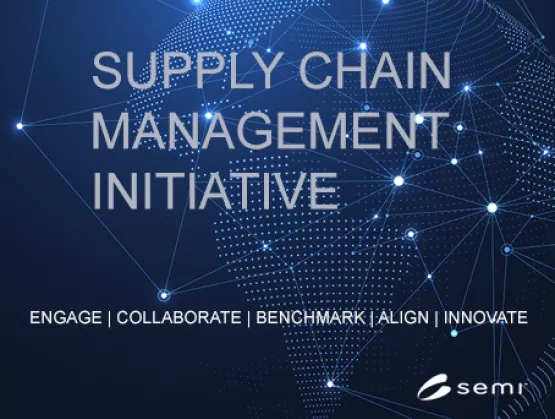
In the quest for robust and adaptable supply chains, the importance of agility and resilience cannot be overstated. As we underscored in our previous blog post Supply Chain Resilience and Agility – Two Critical Sides of the Same Coin, these elements today are pivotal in navigating the complexities of supply chain operations. This article delves deeper into the concept of agility, exploring its nuances and presenting key metrics and techniques to enhance agility specifically in electronics supply chains.
Supply chain agility refers to the ability of a supply chain to respond quickly and effectively to changes in demand, disruptions in supply, and other external factors. An agile supply chain has the remarkable capacity to adjust its processes, resources, and strategies in real-time to meet new challenges and opportunities.
There are five key elements of supply chain agility:
- Flexibility: A supply chain needs to be flexible in its design, processes, and resources to respond quickly to changes in demand and supply.
- Visibility: Real-time visibility into the entire supply chain is critical to quick decision-making and responsiveness.
- Collaboration: Collaboration and communication among all stakeholders in the supply chain, including suppliers, manufacturers, distributors and retailers, is essential.
- Resilience: The ability to quickly recover from disruptions, such as natural disasters or supply chain disruptions, is a key aspect of supply chain agility.
- Innovation: The capability to innovate and adapt quickly to changing market conditions is also key.
By focusing on these five elements, supply chain managers can build agile supply chains able to respond quickly and effectively to changing market conditions, customer demand, and supply disruptions.
 One technology used to improve supply chain agility are digital twins. Increasingly adopted by supply chain managers, digital twin technology enables supply chain managers to create a virtual model of their operations, allowing them to simulate various scenarios and optimize their processes to improve resiliency and efficiency while reducing costs.
One technology used to improve supply chain agility are digital twins. Increasingly adopted by supply chain managers, digital twin technology enables supply chain managers to create a virtual model of their operations, allowing them to simulate various scenarios and optimize their processes to improve resiliency and efficiency while reducing costs.
Following examples of how digital twin technology has been implemented in supply chains:
- Intel optimizes its semiconductor manufacturing process. The digital twin creates a virtual model of the manufacturing process, which is used to simulate different scenarios and identify potential issues before they occur, reducing delays and improving quality.
- Samsung optimizes its semiconductor manufacturing and supply chain operations. The digital twin allows the company to simulate different production scenarios and optimize its operations to reduce costs and improve efficiency.
- Siemens optimizes its electronics manufacturing and supply chain operations. The digital twin is a virtual model of the production process used to simulate different scenarios and optimize operations to reduce costs and improve efficiency.
- Schneider Electric optimizes its supply chain operations for its industrial automation products. Digital twins allow the company to simulate different scenarios and optimize its operations to reduce costs and improve customer satisfaction.
Excitingly, at SEMICON West 2023, July 11-13 in San Francisco, the following distinguished supply chain leaders will convene on the keynote stage for the panel discussion Navigating Uncertainty – How Do You Build Agile Supply Chains moderated by Bettina Weiss, Chief of Staff and Corporate Strategy at SEMI:
- Jorge Camez, Senior Vice President of Worldwide Procurement and Global Materials at Dell
- Jackie Sturm, Corporate Vice President and General Manager of Global Supply Chain Operations at Intel
- Gregory Blanchette, Vice President, Strategic Supplier Management at KLA
- Bill J. Wiseman, Senior Partner at McKinsey & Company
- Bindiya Vakil, CEO and Founder at Resilinc
Intel and KLA are founding members of the SEMI Supply Chain Management Advisory Council.
Moreover, the Smart Manufacturing Pavilion will feature six industry presentations illuminating the path to supply chain agility.
As part of its commitment to driving industry growth, SEMI is also launching a supply chain agility workgroup and invites member companies to join the Supply Chain Management (SCM) Initiative. Together we can accelerate the adoption of SCM tools and platforms and develop strategies to identify and address supply chain vulnerabilities. Please contact us at scm@semi.org and be part of the collective effort to navigate supply chain uncertainty with confidence.
Krish Dharma is Senior Advisor for the SEMI Supply Chain Management Initiative.